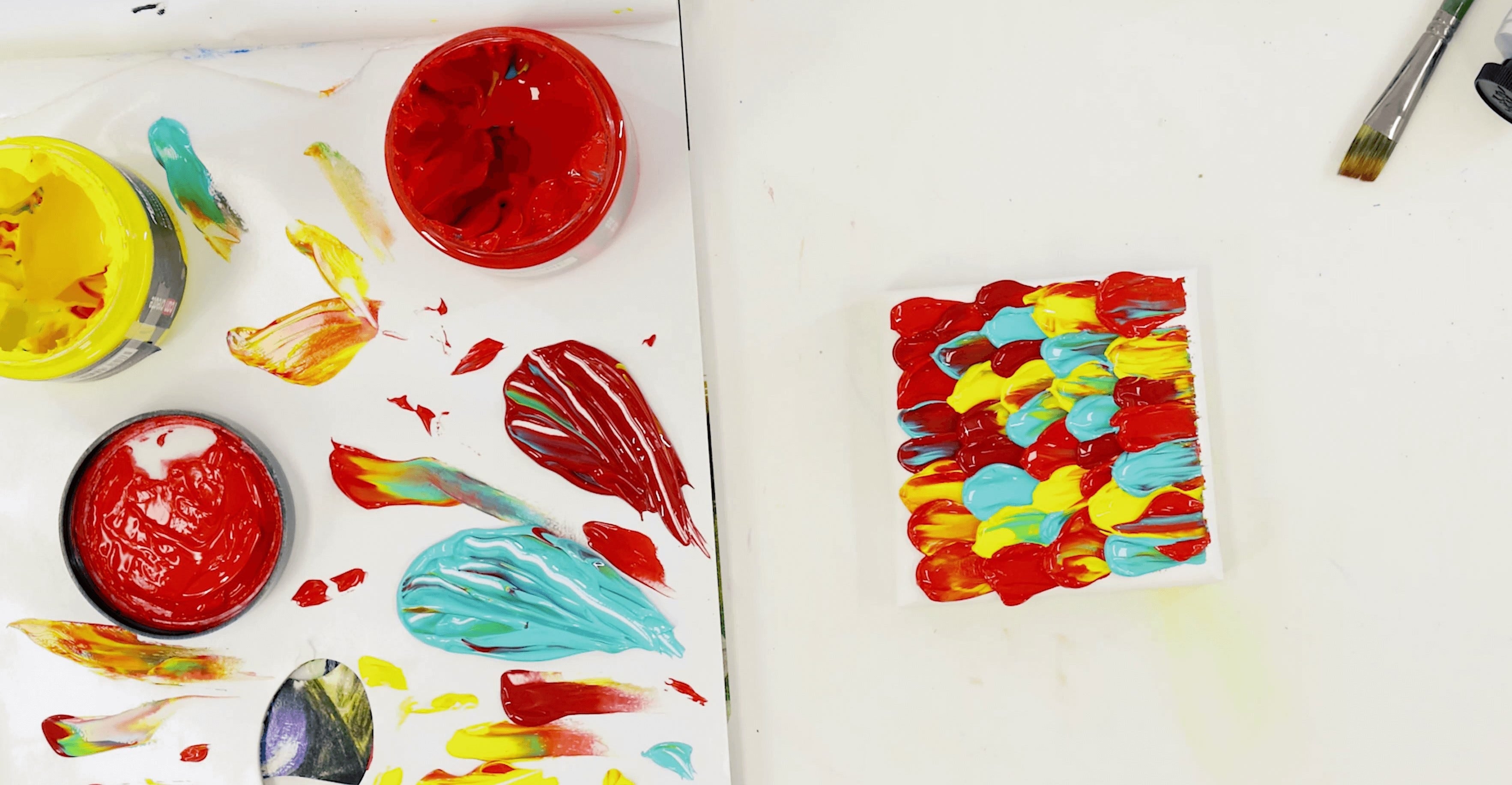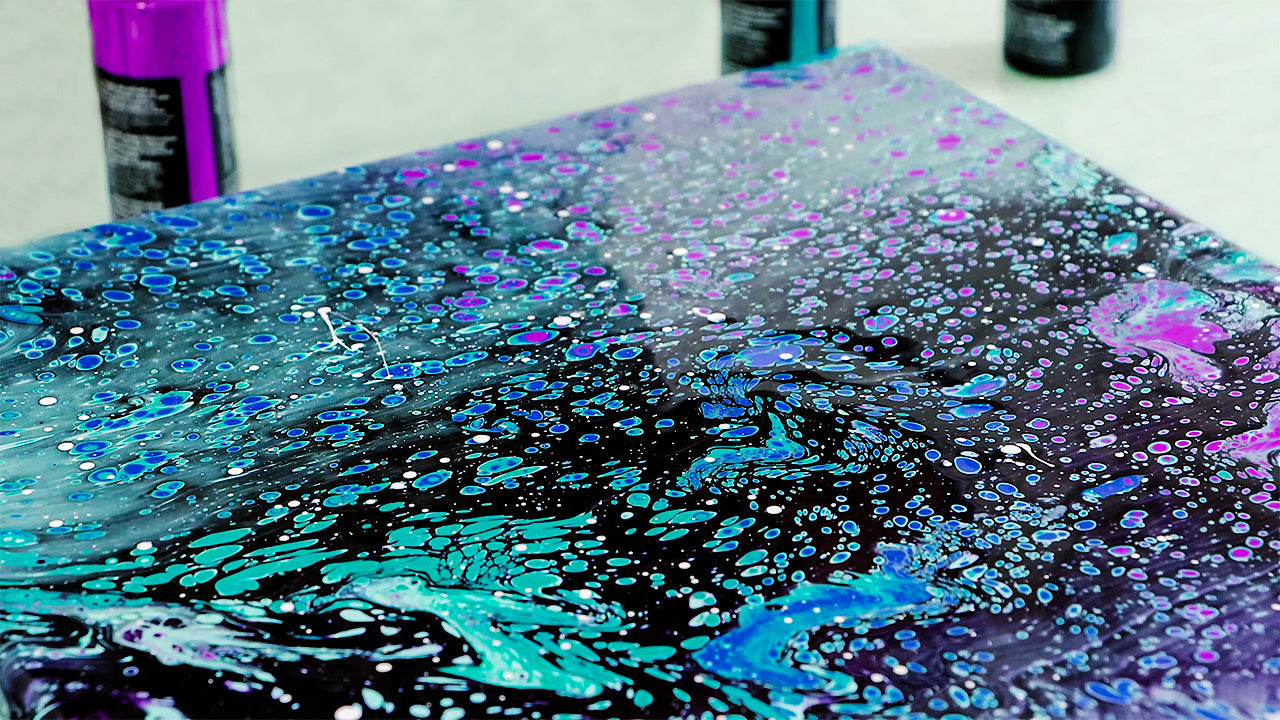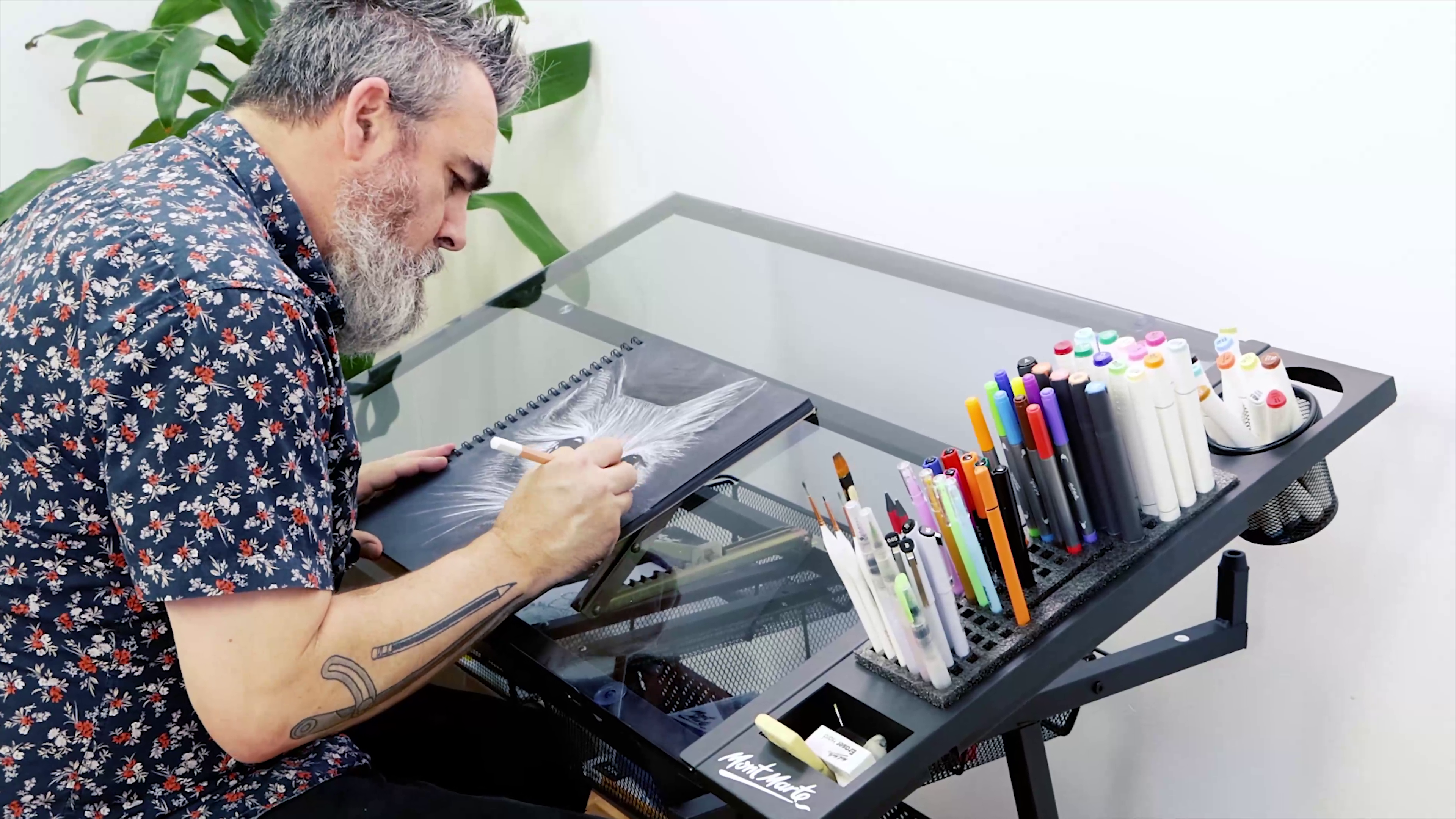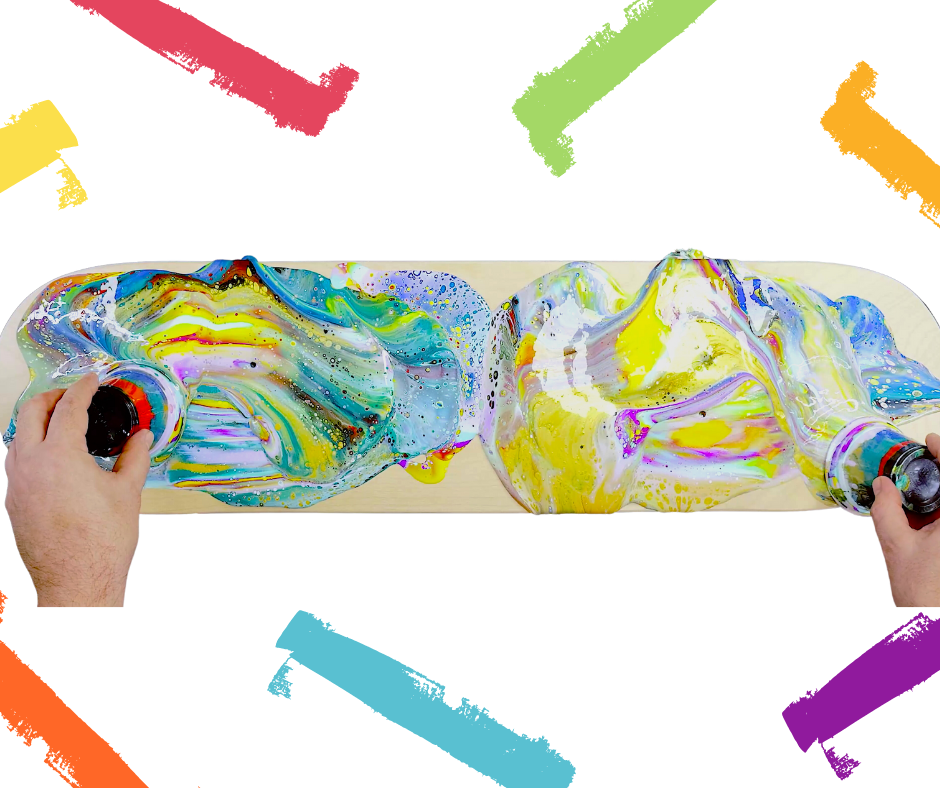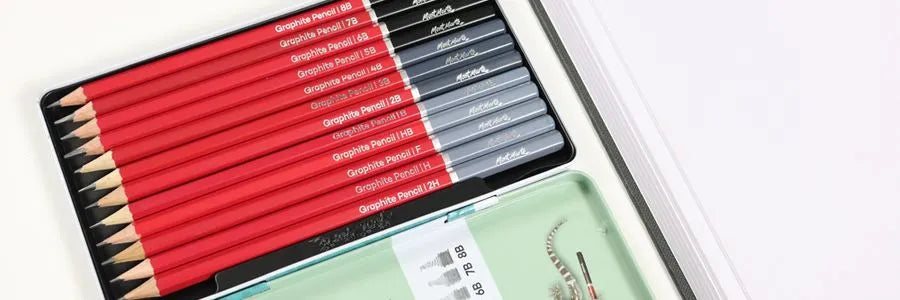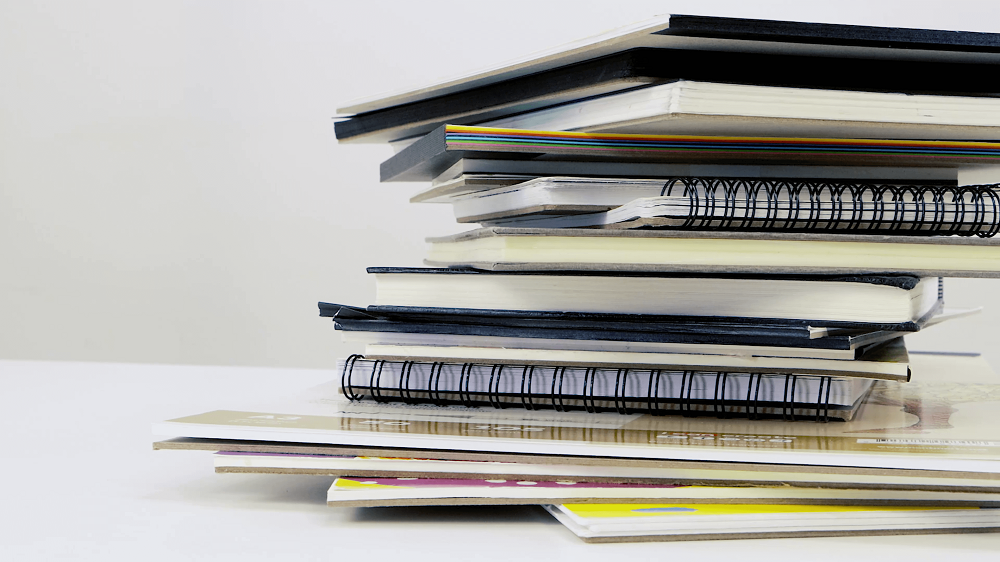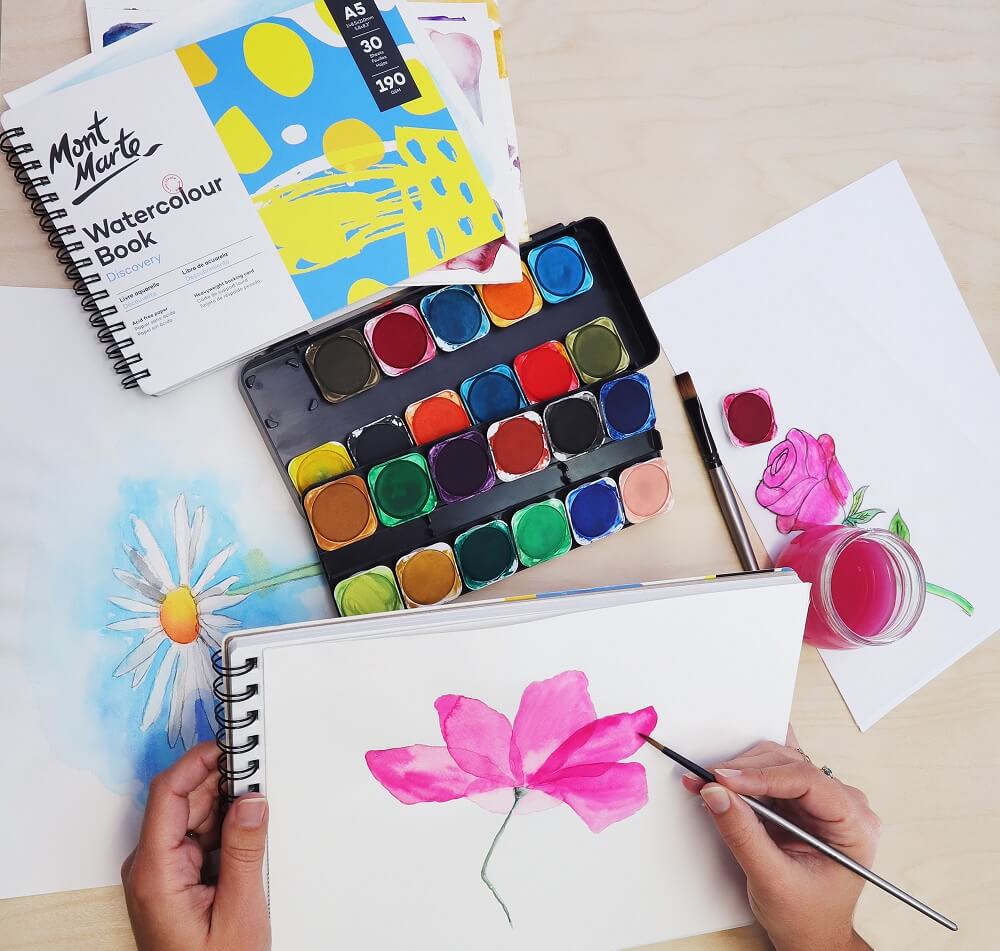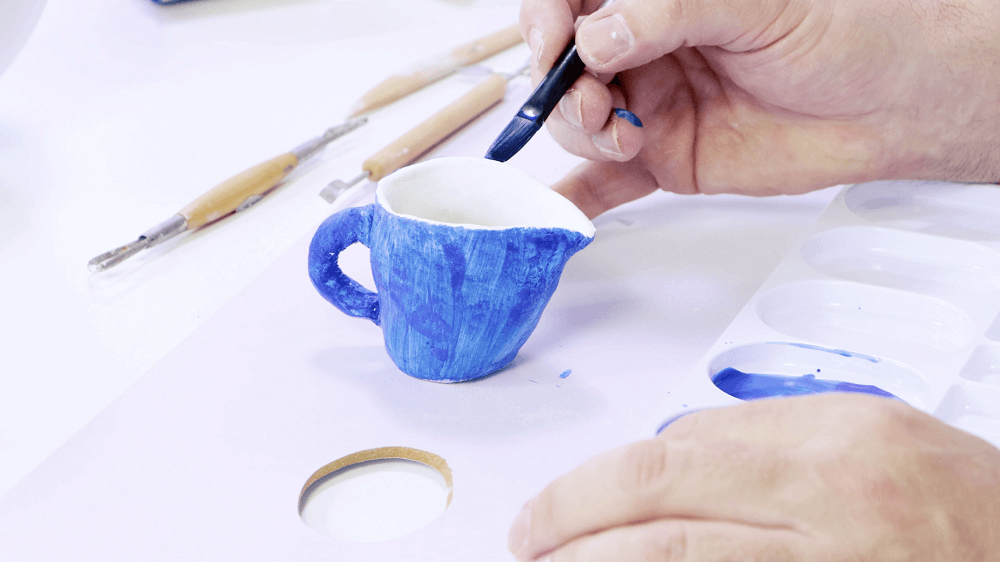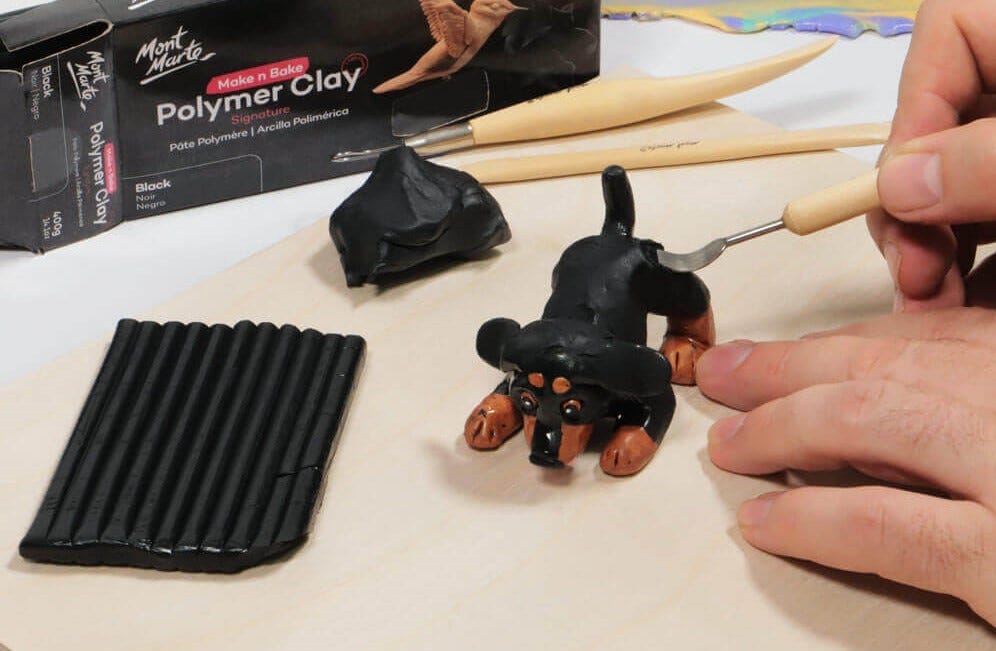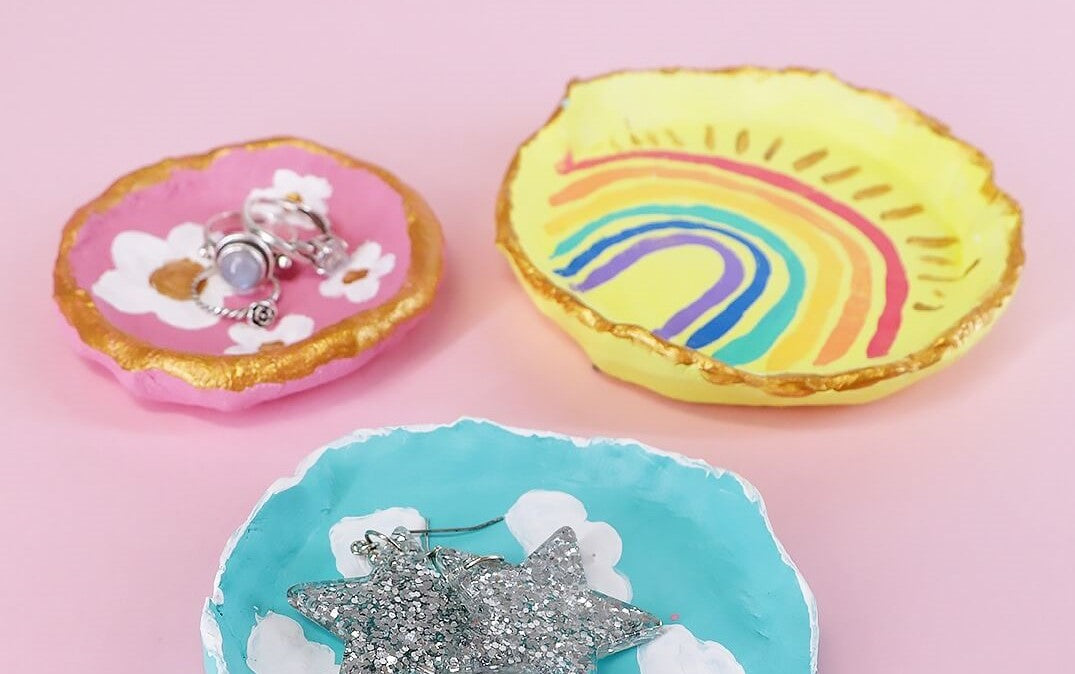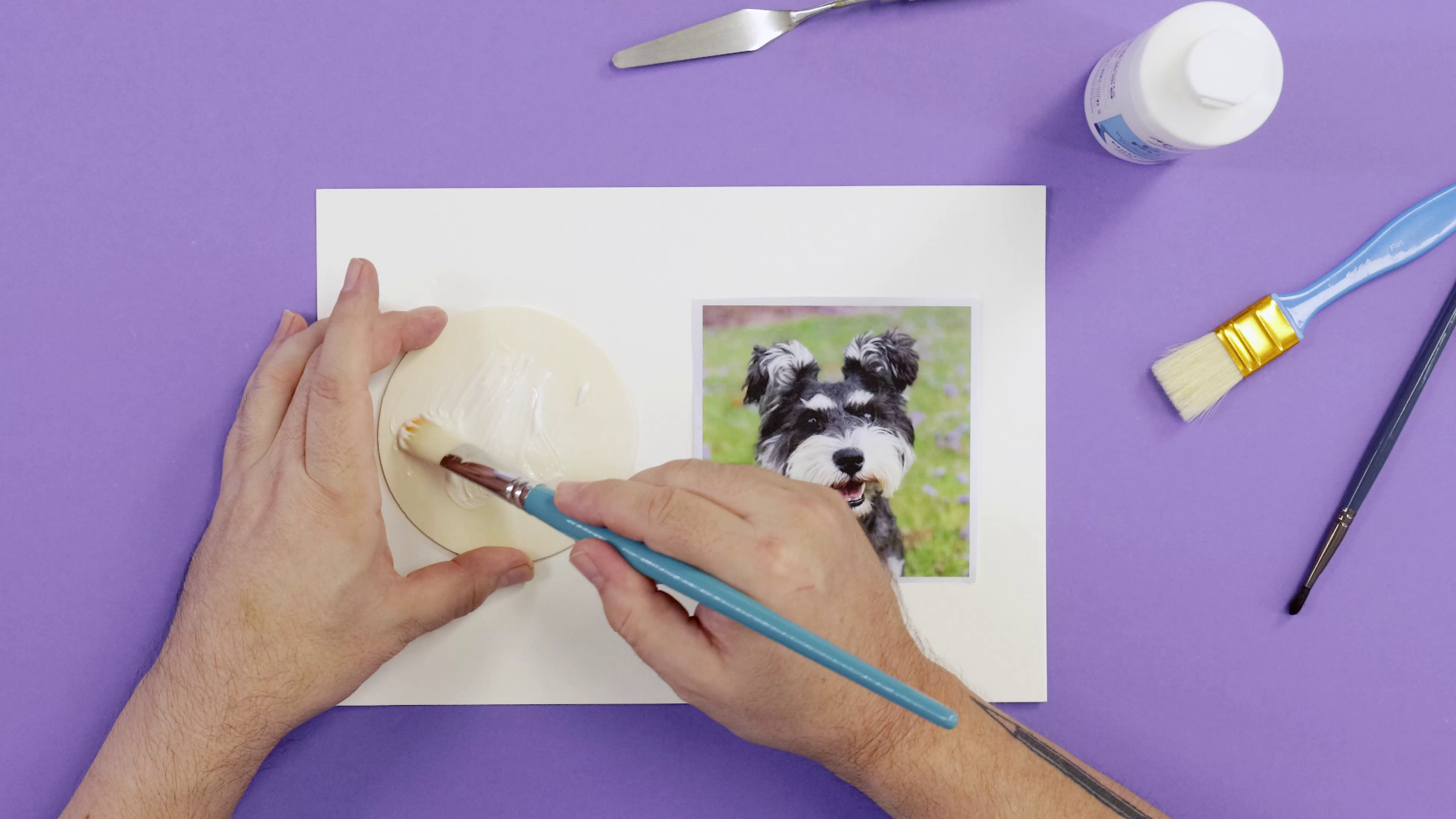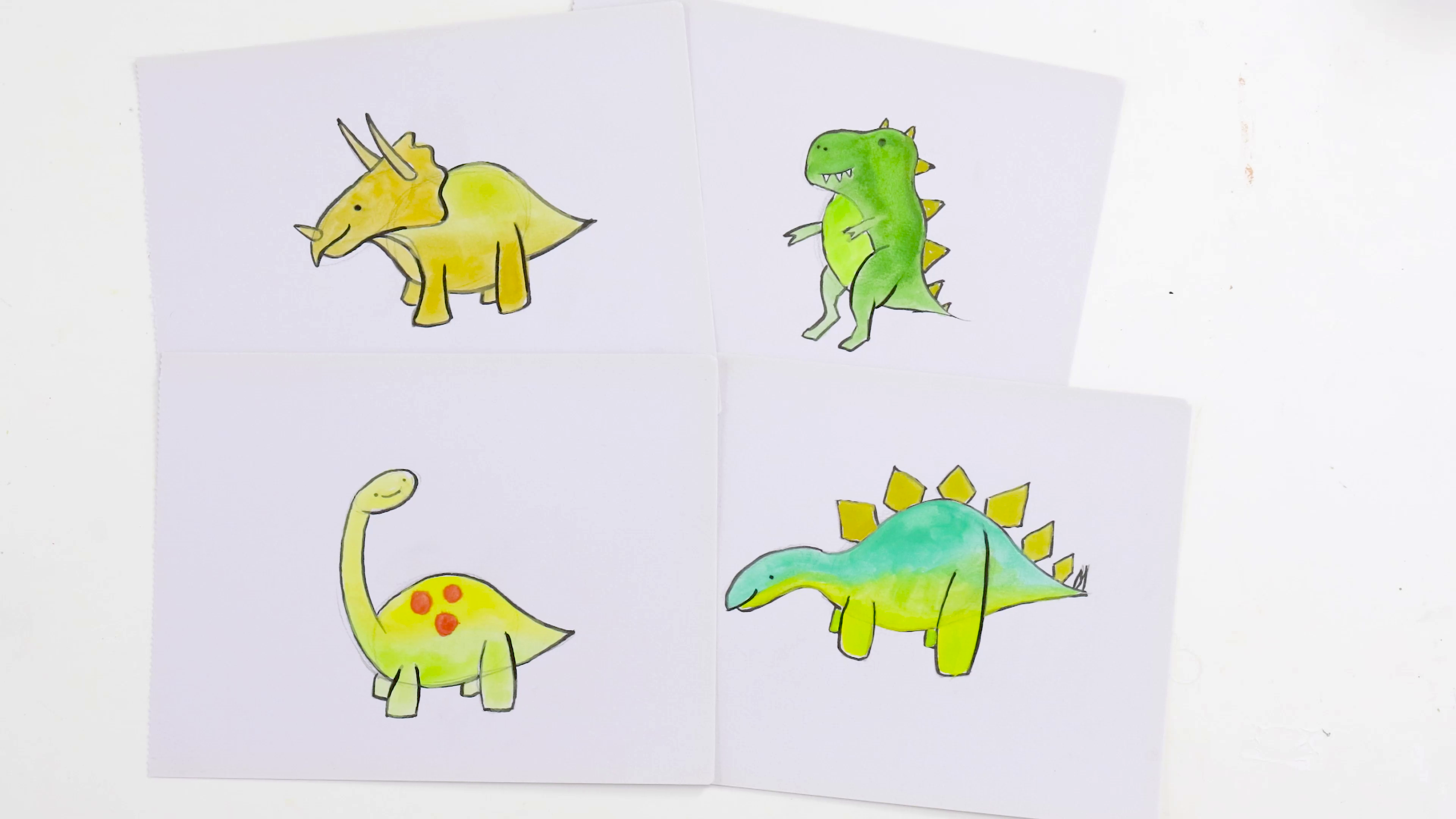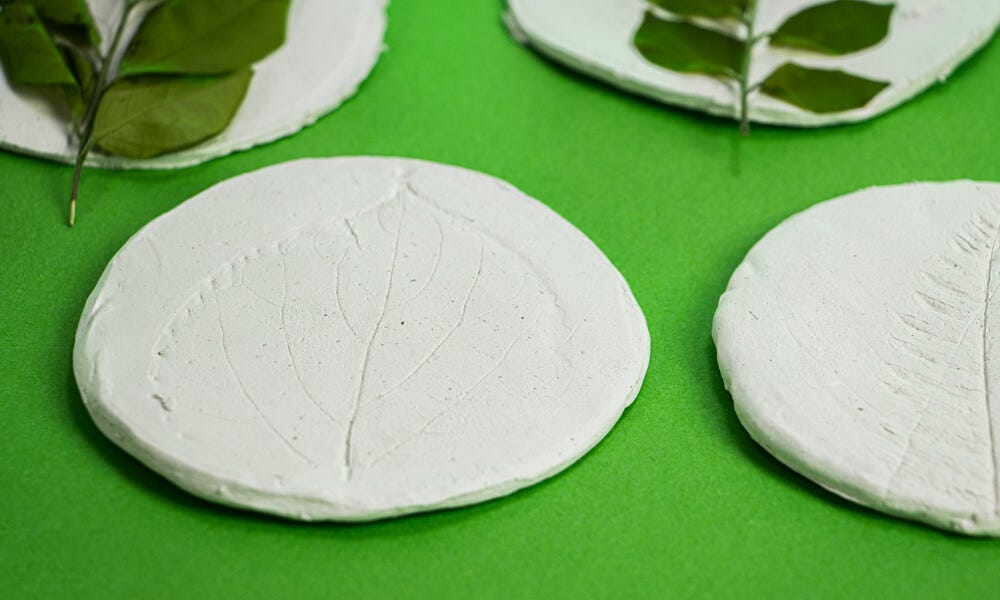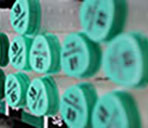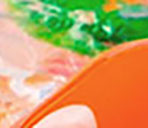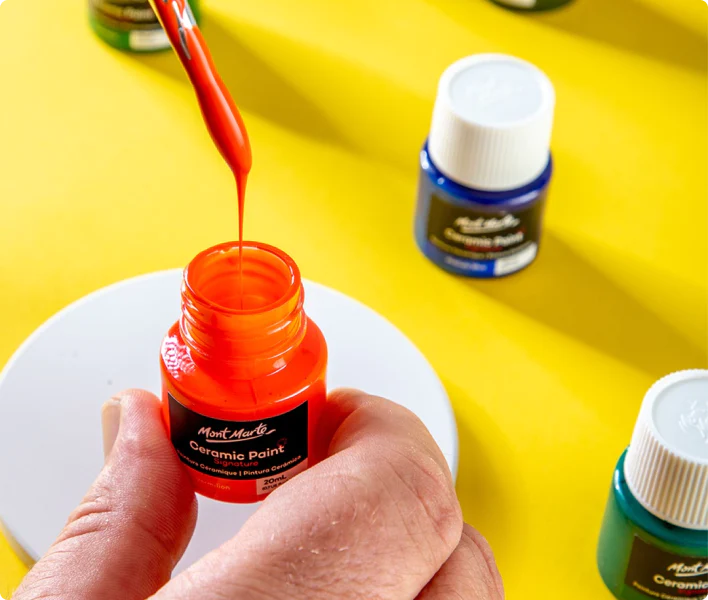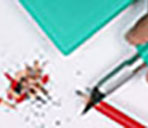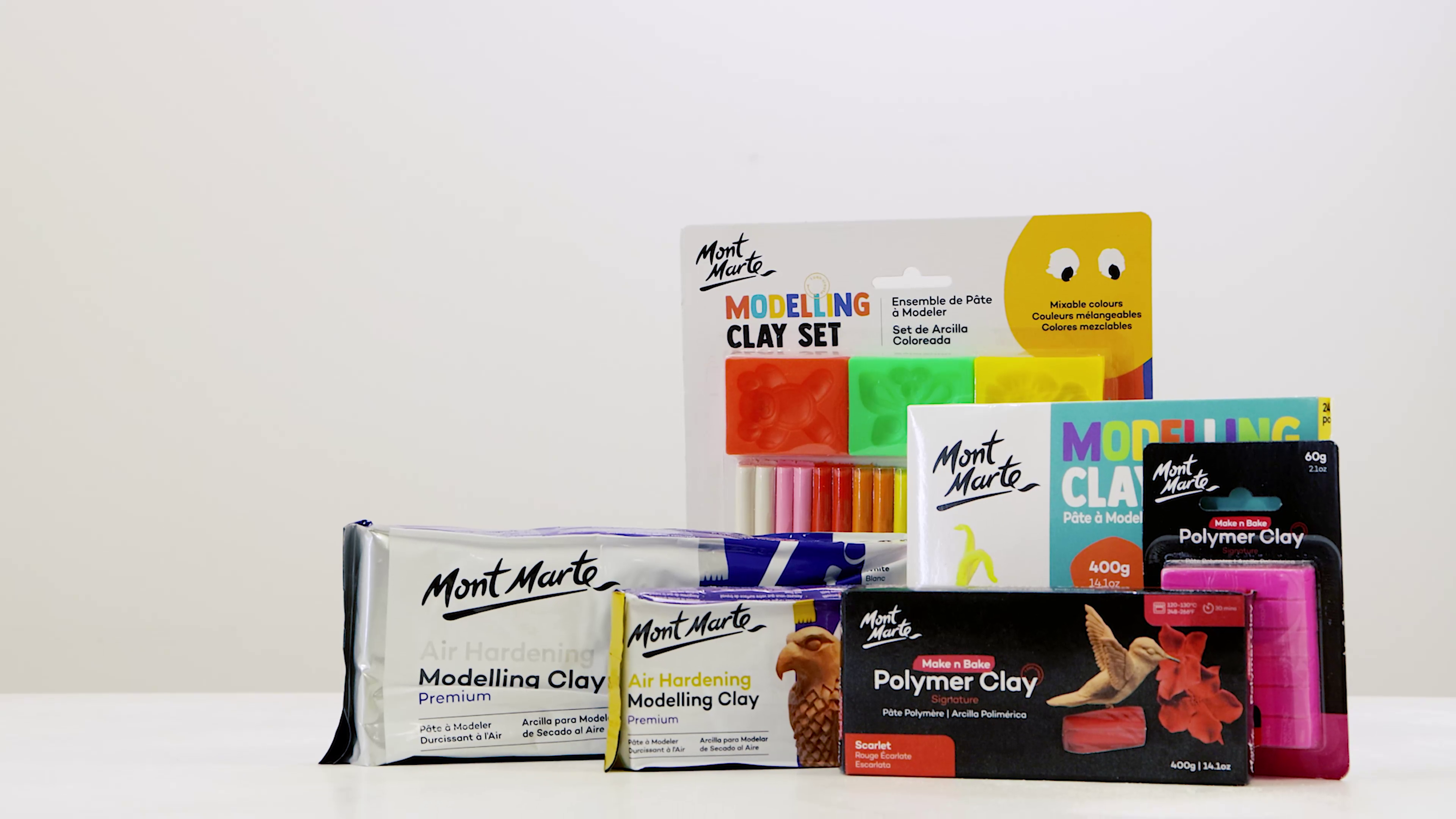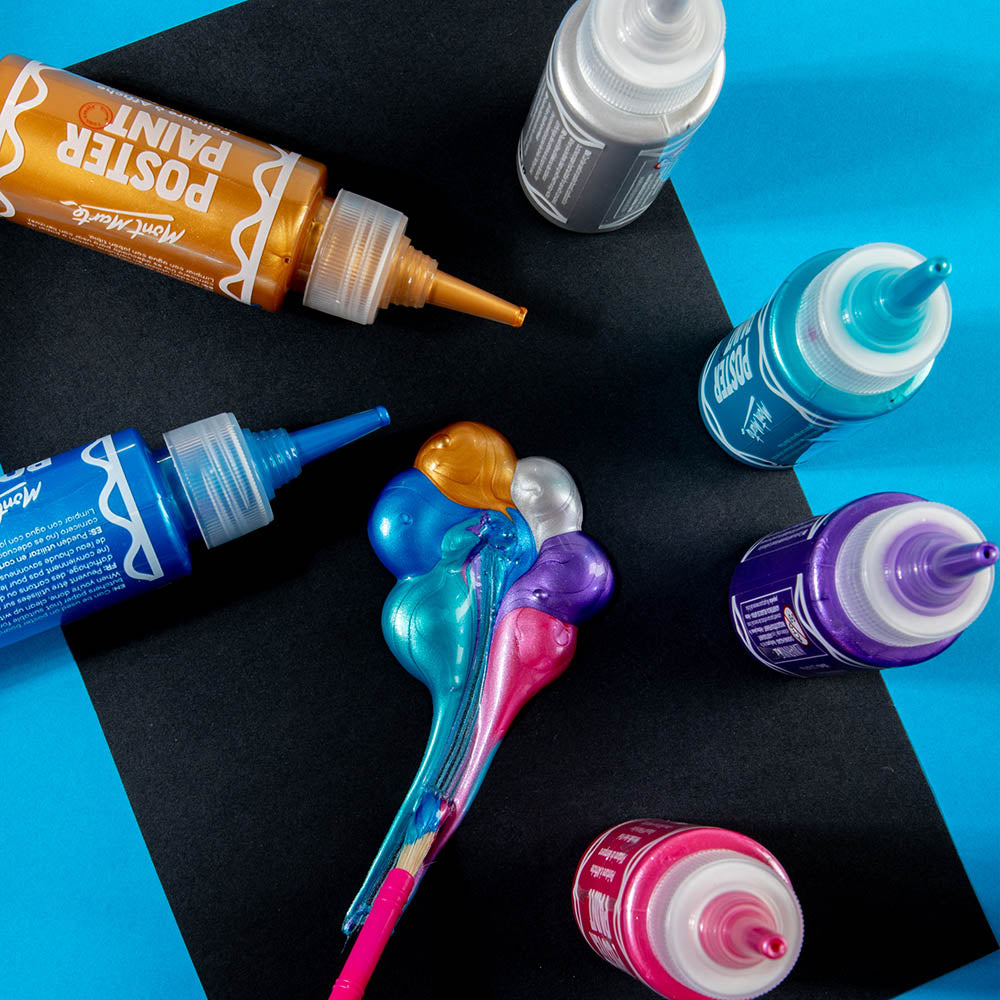Looking to get into clay, but not to sure which to choose? With so many different types of clay out there, it can be confusing where to start. So, we’ve brought together a handy clay guide.
Air dry clay:
This type of clay is fantastic for beginners, little artists, and a lot of easy DIY clay projects. From Christmas and Halloween decorations to weekend crafts, air dry clay is simple to work with and it'll easily dry overnight. Because of the slow drying time, this heavy-bodied clay has a large window for creating before it sets.
Unlike Polymer clay which will need an oven to bake, air dry clay (as the name suggests) will easily dry through the air. You might see some cracking, as the clay evaporates but this is normal and easy to fix. If your creation is going to come into contact with water or you’re planning to pop it outside, you’ll need to waterproof your air dry clay. This is really simple and can easily be done by adding two coats of acrylic paint or with an air dry clay varnish.
Types:
- White or Terracotta
Sizes:
- 500gms (1.1lb)
- 2kg (4.4lb)
Techniques:
- Slab building
- Pinch pottery
- Slip
- Waterproofing
For more techniques see our air dry clay techniques
Polymer clay:
If you’re looking to create sculpture projects, pot plants, jewellery or beading, then polymer clay is worth a shot! Polymer clay and air dry clay are similar, though polymer clay dries hard so it’s great for creating jewellery. Polymer clay is made from plastic and once this gets hot enough, it hardens to blend the clay together.
Unlike air dry clay, polymer clay needs an oven to harden and set, but you won’t need to worry about making your project waterproof. The Mont Marte Make n Bake Polymer Clay is soft, smooth and malleable once conditioned. Polymer clay holds form well and can be drilled, sanded, cut and painted once dry. Or you can use a silicone mould to create shapes in your polymer clay. Not sure how? Check out this handy how to.
Types:
- Make n Bake Polymer Clay, multiple colours available
Sizes:
- 60g (2.1oz)
- 400g (14.1oz)
- 100g
Techniques:
- Clay canes
- Clay coiling
- Armature
- Marbling
For more techniques see our polymer clay techniques.
Modelling Clay:
Modelling clay is great for little artists or those looking to create fun clay creations that won’t need to be baked or hardened. Modelling clay is soft, pliable, and available in a range of different colours. Typically, this type of clay will be blendable, and colours will easily melt together to create new ones, so you won’t need every colour under the sun to get creative. Depending on the manufacturer, modelling clay also tends to hold form well so it’s easy to create 3D shapes like spheres. Modelling clay is wonderful for Claymation, creating with kids, or anywhere you’d like to create from clay and don’t really need to wait for it to dry or harden.
Types:
- Discovery
- Play
Sizes:
- 6pc Play Dough
- 21pc Modelling Clay
- 24pc Modelling Clay
Techniques:
- Blending
- Shaping
- Claymation
Plaster of Paris
Plaster of Paris can be used to create casts, moulds or sculptures. It’s a quick setting powder that turns to plaster when mixed with water. A good ratio is about 1 part water to 3 parts plaster, though less water will make your casting stronger. Plaster of Paris can be dangerous to work with if you’re not sure how to do it, so check out our how to mix plaster correctly video before starting out, and never use bare hands to mix or stir plaster.
Types:
- Signature
Size:
- 1kg
Techniques:
- Casting
- Moulding
- Sculpting
Plaster cloth wrap
This type of clay is a combination of plaster of Paris and a cotton gauze-style wrap. This medium is a great alternative to paper mache and works in a similar way (though your creations will be a lot stronger and hold form better than paper mache). The strips of cotton wrap can be easily cut to size or be used to cover a wire frame, model, or objects, making this a great choice for creating masks, sculptures, school projects or hobby art. Plaster cloth wrap is buildable, all you need to do is cut the strips, wet the cotton wrap and shape it. Once dry, the cloth will dry hard, and you’ll have a sculpture! Plaster cloth wrap will need a coat of acrylic paint to make your creation water resistant and it can be sanded and painted once dry.
Types:
- Signature
Sizes:
- 10cm x 4.6m (3.9in x 14.8ft)
Techniques:
- Casting
- Moulding
- Sculpting
- Paper Mache
We hope this clay guide has made the decision on which types of clay to use, much easier for you. Get started on that clay project with one of our projects. Or try one of these 4 easy air dry clay projects.
We hope that you feel inspired to create something with clay. Try polymer, air hardening, modelling or plaster of Paris for yourself and #montmarteart or tag us @montmarteart on Instagram or Facebook, we’d love to see what you create.

